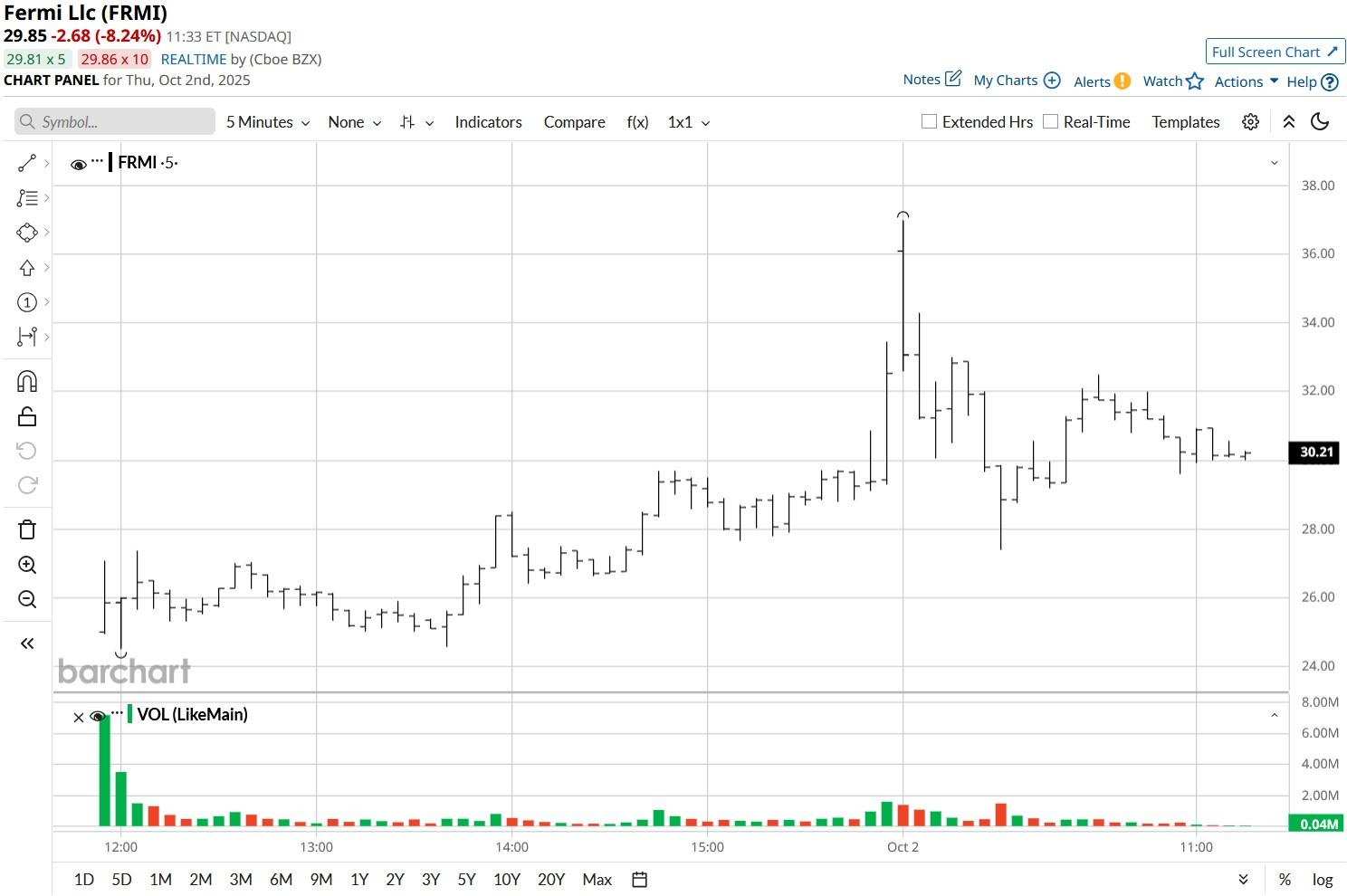
Fermi (FRMI) shares remain in the spotlight on Thursday after a blockbuster initial public offering (IPO) that valued the company’s shares at $21 each.
The real estate investment trust (REIT) headquartered in Amarillo, Texas is committed to powering artificial intelligence (AI) data centers with natural gas (NGX25) and nuclear reactors.
FRMI shares printed a high above $36 on Thursday, indicating a 70% premium on their IPO price.

The Case for Investing in Fermi Stock
Fermi stock is a high-risk, high-reward investment for those interested in betting on the long-term demand for AI infrastructure and electricity.
Investors should consider owning FRMI at current levels as its pitch is tailor-made for the artificial intelligence era: Build the world’s largest data center campus powered by mix of natural gas, solar and nuclear power, and battery storage.
Fermi’s site spans over 5,200 acres in the Texas Panhandle and the company has already secured access to major pipelines and turbine equipment.
FRMI stock may be attractive also because the REIT structure offers tax advantages, and the firm’s first customer – a major technology company – has recently signed a 40-year letter of intent.
Why Else Are FRMI Shares Worth Owning
FRMI’s leadership team includes Rick Perry, former U.S. energy secretary, and Toby Neugebauer, a seasoned private equity executive with deep ties to power financing.
The company’s proximity to natural gas fields and its aggressive timeline – targeting its first nuclear reactor by 2031 – underscore its ambition.
While Fermi is a pre-revenue business unlikely to pay dividends for years, its vision could reshape how data centers source energy.
In short, if execution matches ambition, FRMI could become a cornerstone of AI infrastructure, making Fermi shares a speculative but potentially transformative investment.
Wall Street Hasn’t Yet Assumed Coverage of Fermi
Investors should note, however, that Wall Street hasn’t initiated coverage on FRMI shares yet.
This means they are pretty much on their own when evaluating the company’s fundamentals and its financial trajectory.







